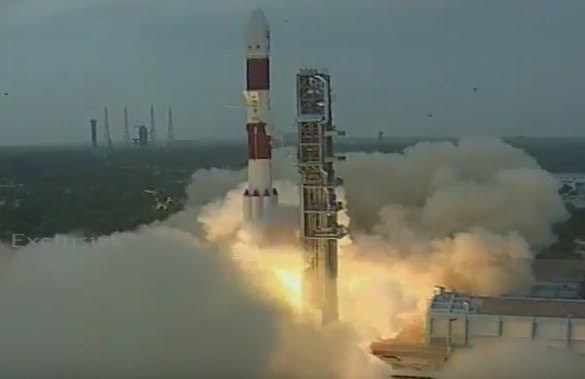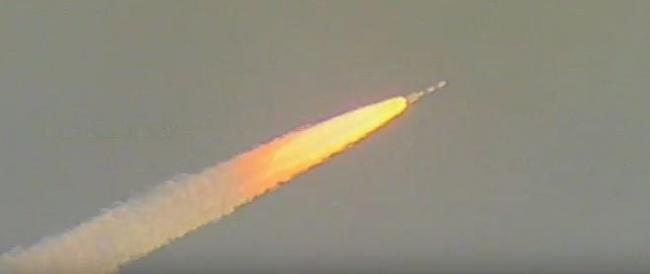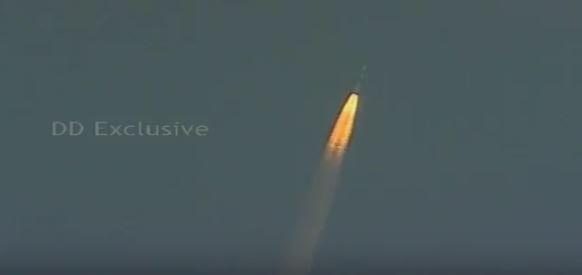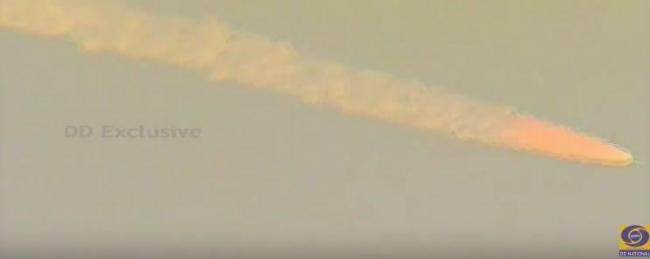
Data from RESOURCESAT-2A launched by PSLV-C36 by will help in agri applications
The 38th flight of PSLV-C36 took off from the Satish Dhawan Space Centre SHAR, Sriharikota, Andhra Pradesh.
Tweeted Dr Harsh Vardhan, Union Minister of Science & Technology, Earth Sciences, "Congratulations @ISRO on successfully placing 1.2-tonne Resourcesat-2A in the orbit. 1st time we used our own Navic System to navigate PSLV."
 After PSLV-C36 lift-off at 10:25 am IST from the First Launch Pad with the ignition of the first stage, the subsequent important flight events, namely, strap-on ignitions and separations, first stage separation, second stage ignition, payload fairing separation, second stage separation, third stage ignition and separation, fourth stage ignition and cut-off, took place as planned.
After PSLV-C36 lift-off at 10:25 am IST from the First Launch Pad with the ignition of the first stage, the subsequent important flight events, namely, strap-on ignitions and separations, first stage separation, second stage ignition, payload fairing separation, second stage separation, third stage ignition and separation, fourth stage ignition and cut-off, took place as planned.
After a flight of 17 minutes 05 seconds, the vehicle achieved a polar Sun Synchronous Orbit of 824 km height inclined at an angle of 98.725 degree to the equator (very close to the intended orbit) and 47 seconds later, RESOURCESAT-2A was separated from the PSLV fourth stage.
 After separation, the two solar arrays of RESOURCESAT-2A deployed automatically and ISRO's Telemetry, Tracking and Command Network (ISTRAC) at Bangalore took over the control of the satellite.
After separation, the two solar arrays of RESOURCESAT-2A deployed automatically and ISRO's Telemetry, Tracking and Command Network (ISTRAC) at Bangalore took over the control of the satellite.
Union Minister of Health and Family Welfare, Jagat Prakash Nadda tweeted, "Congratulations @isro for launching PSLV C-36 carrying RESOURCESAT-2A. Graciously fortifying India’s position in space technology."
The centre's Minister Of State for Information & Broadcasting; Rajyavardhan Rathore tweeteed, "Congrats to @isro on the launch of PSLV C-36 carrying ResourceSat-2A; further reinforcing India’s prowess & domination in space technology!"
In the coming days, the satellite will be brought to its final operational configuration following which it will begin to provide imagery from its three cameras.
The data sent by RESOURCESAT-2A will be useful for agricultural applications like crop area and crop production estimation, drought monitoring, soil mapping, cropping system analysis and farm advisories generation.
 Like its predecessors RESOURCESAT-1 and 2, RESOURCESAT-2A has a unique 3-Tier imaging system with Advanced Wide Field Sensor (AWiFS), Linear Imaging Self Scanner-3 (LISS-3) and Linear Imaging Self Scanner-4 (LISS-4) cameras.
Like its predecessors RESOURCESAT-1 and 2, RESOURCESAT-2A has a unique 3-Tier imaging system with Advanced Wide Field Sensor (AWiFS), Linear Imaging Self Scanner-3 (LISS-3) and Linear Imaging Self Scanner-4 (LISS-4) cameras.
The AWiFS provides images with a sampling of 56 metres, a swath of 740 km and a revisit of 5 days whereas the LISS-3 provides 23.5 metre sampled images with 141 km swath and a repitivity of 24 days.
LISS-4 provides 5.8 metre sampled images with 70 km swath and a revisit of 5 days.
The total number of satellites launched by India’s workhorse launch vehicle PSLV including the Wednesday launch of RESOURCESAT-2A has now reached 122, of which 43 are Indian and the remaining 79 are from abroad.
Images: ISRO and PIB India Twitter
Support Our Journalism
We cannot do without you.. your contribution supports unbiased journalism
IBNS is not driven by any ism- not wokeism, not racism, not skewed secularism, not hyper right-wing or left liberal ideals, nor by any hardline religious beliefs or hyper nationalism. We want to serve you good old objective news, as they are. We do not judge or preach. We let people decide for themselves. We only try to present factual and well-sourced news.







